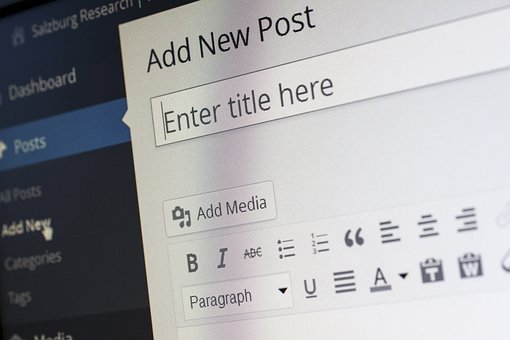Today I'm interviewing on my blog Dianne Stadhams. We have published several of her short stories in our annual anthologies. We have also been pleased to publish her linked short story collection Links. Today we are talking to her about her writing in general and about her YA novel Doll Face.
What do you write? Why this in
particular?
So many reasons! Because I enjoy telling
stories. Because I am incensed at the level of social injustice... literature is
a powerful tool to raise awareness and contribute to social change. Because
ageing women in developed world societies are increasingly invisible. Actually
I'm guessing they always have been... or vilified as witches etc. And just
BECAUSE!!!
What got you
started on writing in the first place?
I have always enjoyed writing... from
school (where teachers got me to write to keep me quiet and sitting still) to
work (where I wrote non-fiction which included anything from business
development plans and evaluations to academic articles on poverty alleviation
strategies). From my passion for theatre I started writing scripts and had some
success. When I moved to a rural area and briefly joined a writers' group I
started writing short stories because the other members didn't want to read
scripts.
Do you have a particular
routine?
I try and write most days but life can be a
great disrupter. I hibernate in mid-winter and try to get a first draft of a
novel completed.
Do you have a
dedicated working space?
Yes I'm very fortunate to have my own
office... nicknamed The Tip... say no more... except that it overlooks a forest
with Welsh mountains in the background.
When did you
decide you could call yourself a writer? Do you do that in fact?
When I got my first royalty payment. It
might only have bought me a coffee or two but it felt momentous and bone fide. I
usually say I'm trying to write full-time rather than I AM a writer. It's not
exactly lack of confidence. More ego... as people always ask if they would have
heard of my books. Answer... err, well, do you want to check me out on
Goodreads? Amazon? The Hive? Bridge House Publishing? The Red
Telephone?
How supportive
are your friends and family? Do they understand what you're doing?
Supportive in that they see writing fulfills
a need in me. Delighted that I've had publishing success. I only wish more of
them would upload reviews. My family has copies of books on display in their
homes... but I'm not sure they've actually read the books.
What are you most
proud of in your writing?
Finishing a manuscript; having three plays
selected for workshops and productions at London and Bristol theatres; being
published.
How do you get on
with editing and research?
The research I quite like doing. I tend to
delve as it fits the plot point. I find editing works best for me when I write
the draft and then put it away for a time. Then what doesn't flow or the gaps in
the work leap out.
Do you have any
goals for the future?
I have three novels and another collection
of short stories I would like to see published.
Which writers
have inspired you?
Too many to list but three books that had a
massive, positive impact for different reasons are: Cry the Beloved Country by Alan Paton, Wonder by R.J. Palacio and Apeirogon by Colum Mc Cann.
And about Doll
face specifically:
So, tell me
about Doll Face
Doll Face is the story of what happens when Tilly
is taken hostage on holidays. She’s 14, feisty, funny and was born with Mosaic
Down Syndrome. Post-holiday Tilly is not sleeping. Her parents and school are
worried. Tilly is sent for therapy where she shares her views on tourism
development and land rights campaigners. With her secret passion for dodgy
websites Tilly’s decision to tell the world her version of the truth and what
justice is really all about goes viral.
Doll Face is told
through the eyes of Tilly talking to her psychologist; naive Yousef, the young,
British educated, leader of the campaign group who seize the tourists to raise
awareness about environmental issues; ambitious student Giselle, a wannabe
journalist reporting for a British television channel, whose arachnophobia
triggers a deadly crisis; smitten Private Jack, a British soldier sent to deal
with the hostage situation who is flattered by Giselle’s flirtation but learns
the price of interference; and loyal friend Jane Doll, Tilly’s alter ego who
accompanies her at all times and is the namesake on her Internet blog.
The novel was short-listed for the Triskele prize
for debut writers.
Tell us
about your research for this book.
Much of the reason for writing the book
came from my work and studies in tourism development in some of the world's
poorest communities. How individuals, communities and governments see tourism
and its benefits can be contentious. The research on Down Syndrome was rooted in
my experience with a friend's child over many years, contact with a charity and
a lot of reading about the topic..
What
inspired you to write this?
I am fascinated and amused
at how other people view their worlds. A childlike perspective can be so
inspirational and reveal a powerful truth.
What's next?
Editing the manuscript of a sequel to a who
dunnit. The first novel, Crococdile
Tears, was set in the 1990's. The sequel is set in contemporary times.
Completing an immersive, theatrical script
with original music and lyrics which will premiere in Gloucestershire on June 25
2022.
Do you have any events
planned?
Attending the launch in
London of
Resolutions, a collection of short stories by Bridge House
Publishing. My story,
Advent Calendar, opens the collection






